As the various issues caused by our use of fossil fuels come to light, more is being done to find suitable alternatives.
While the affordability of solar power, pros of wind energy, and similar renewable resources are big news, there are other fuel sources out there that also have great potential.
Many consider biomass energy to be in that latter category. As a carbon-neutral fuel source, it cancels out many of the climate change issues associated with fossil fuels, plus it has other advantages besides.
On the surface, it appears to offer the perfect solution to a lot of the issues caused by our use of non-renewable energy sources.
This raises the question of why biomass energy hasn’t been adopted on a wider scale.
Advantages and Disadvantages of Biomass Energy

Biomass energy struggles to gain widespread adoption because of the intricacies of producing biomass affordably on a large scale.
It’s better thought of as a tool in the renewable energy toolbox.
| Advantages of Biomass Energy | Disadvantages of Biomass Energy |
|---|---|
| It is Renewable | It’s Not Completely Clean |
| Carbon Neutrality | High Costs In Comparison To Other Alternatives |
| Less Dependency On Fossil Fuels | Possible Deforestation |
| It Is Versatile | Production Requires Space |
| High Availability | It Requires Water |
| Low Cost In Comparison To Fossil Fuels | It Has Inefficiencies |
| It Reduces Waste | It’s Under Development |
| Domestic Production |
What Is Biomass?
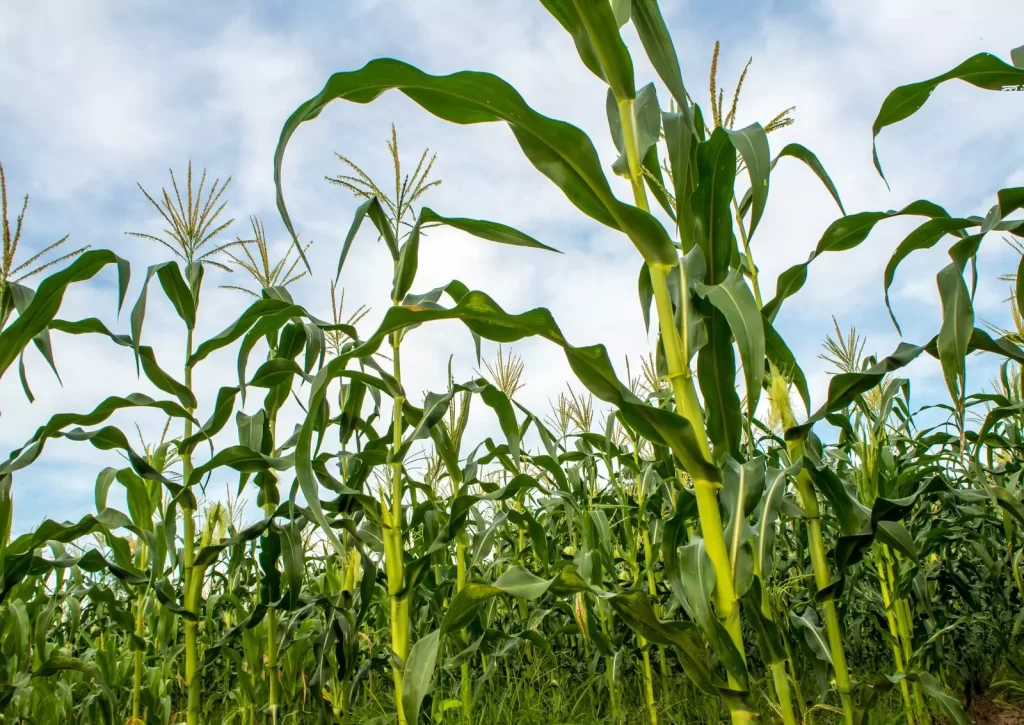
Biomass is organic matter that is turned into fuel to create energy. Biomass can be corn that is made into ethanol. It can be trees that are chipped to feed fires at a power plant.
There are many sources of biomass, but the common thread is the renewable nature of the material being used for energy. Things like oat straw replenish yearly. Other things like trees take decades to replenish.
How Does Biomass Energy Work?
That depends on the type of biomass. Biomass energy usage is the oldest type of energy harvesting humans have used, starting with burning wood and weeds.
In developing countries, animal waste is burned to generate heat for cooking and home heating. This is done on a large scale in certain areas to generate electricity.
Other things can be burned too like the methane gas released from waste digesters and landfills. This is a type of biofuel because it is derived from living or once-living organisms.
Agricultural waste like sugarcane stalks, cereal crop straw, wood waste from factories and lumber companies, logging waste, and yard waste can all be burned to generate heat and electrical energy.
The negative is increased particulate pollution and greenhouse gas release, but the benefit is a reduction in waste volume and a reclamation of stored energy in the biomass.
How Does a Biomass Power Plant Work?
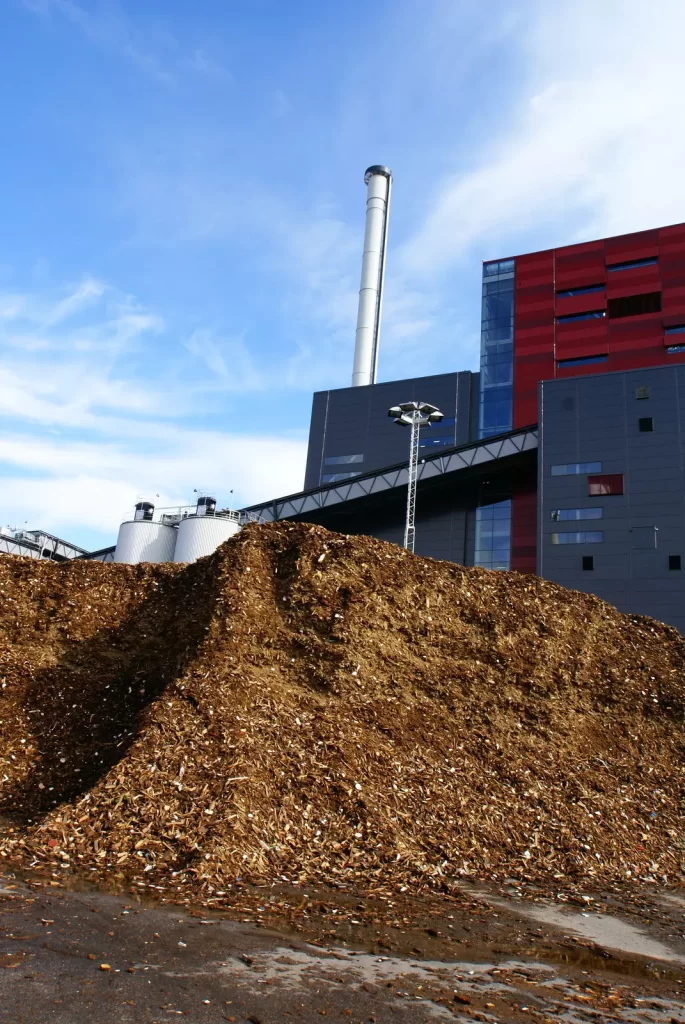
Biomass power plants run on different fuels depending on where they’re located. Some burn municipal waste or crop waste while others burn wood harvested from forests.
The method of energy generation is the same for all types of biofuels.
- The biofuel undergoes preparation for burning
- The biofuel is burned to generate heat to heat water
- The water turns into steam which rises
- The rising steam turns generator turbines
- The turbines convert the energy into electricity
In this way, it is the same as any other type of electrical generation plant that burns fuel to heat water.
Even nuclear power plants produce clean electricity using fuel to generate steam that spins turbines.
Advantages of Biomass Energy
- Biomass is Renewable
- Carbon Neutrality
- Less Dependency On Fossil Fuels
- It Is Versatile
- High Availability
- Low Cost In Comparison To Fossil Fuels
- It Reduces Waste
- Domestic Production
Biomass energy has been used in various forms long before people really spoke about energy efficiency and renewable energy sources.
This would not have been the case if this form of energy did not have its advantages. The availability of biomass fuels has always been a major reason for their use, but there are many more besides.
As the march continues toward finding alternatives to fossil fuels, biomass energy has gained prominence as a frontrunner and a good replacement.
These are the reasons why.
1. Biomass Is Renewable
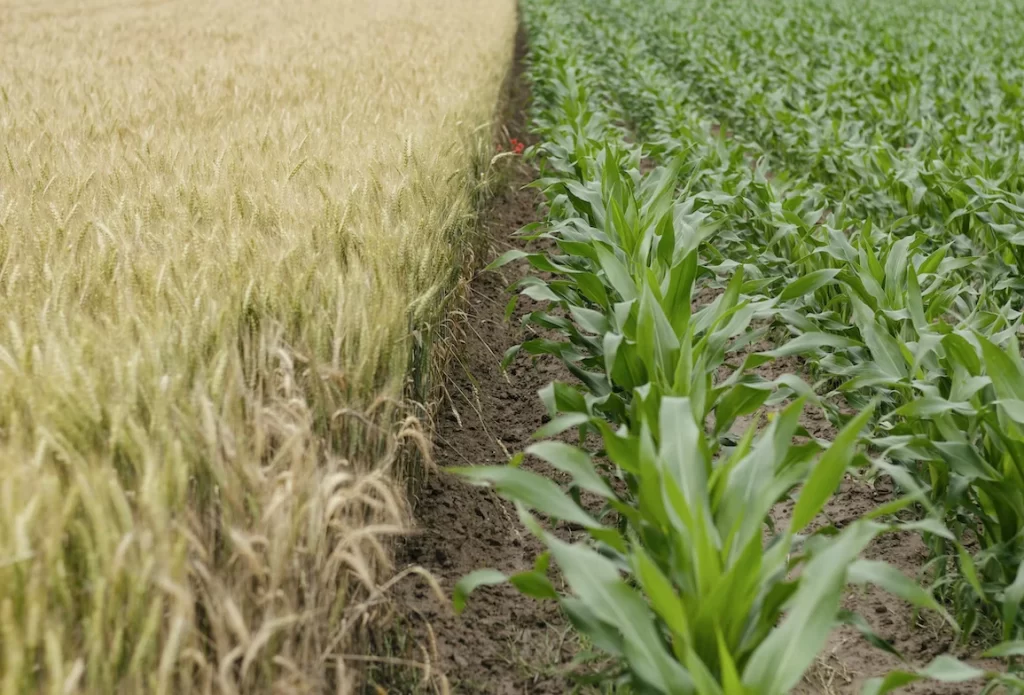
Is biomass renewable? Renewable energy sources are those that can be replenished after use.
As a lot of biomass fuels – such as wood and plant life – can be regrown, it is a truly renewable source. Some biomass sources are waste materials from crops like sugar, corn, oats, and other food crops.
As long as efforts are made to maintain the resources used for biomass energy through dedicated replanting and replenishment, it is a fuel source that has the potential to far outlast traditional fossil fuels.
The key difference between this and other renewable energy sources, such as the sun and wind, is the need for maintenance.
While plant life is abundant, using it without making efforts to replenish stocks can lead to large amounts of it still being wasted, as we see with deforestation.
2. Carbon Neutrality
The amount of carbon that is released into the atmosphere is a major contributor to climate change. Biomass reduces this because the fuel is a natural part of the carbon cycle, unlike oil and other fossil fuels.
The only carbon that is released into the atmosphere from biomass fuels is what was absorbed by the plants during their lifecycles.
As these plants are replenished, the new ones then absorb the same amount of carbon again, creating neutrality that sees no new carbon created.
This makes biomass fuels exceptionally clean.
Read More: Is Carbon Sequestration Effective? Here’s how carbon sequestration could combat global warming.
3. Less Dependency on Fossil Fuels
The more we use biomass energy, the less we need to depend on the fossil fuels that are major contributors to climate change and other environmental issues.
The abundance of biomass materials available also far outweighs that of fossil fuels, making it a more readily available fuel source.
Better yet, if non-renewable materials, such as oil, aren’t being used for fuel, the limited supplies that we have can be used elsewhere.
4. It Is Versatile
Biomass energy is also amongst the most versatile alternatives available. It can be converted into many different fuel sources, each of which has varied applications.
For example, biomass can be processed to create biodiesel for vehicles, but it can also be used to farm methane gas and a range of other biofuels.
Furthermore, wood can be used to generate heat, while the steam produced by some forms of biomass can also power turbines to create energy.
5. High Availability
Biomass fuels are abundant. Much like the sun and wind, they can be found practically anywhere on the planet.
This abundance means that we will not run into the issues that we currently have with fossil fuels when it comes to availability.
However, it is also crucial that this abundance is maintained.
While biomass fuels will always be available because they are part of the natural lifecycle of the planet, this should not lead to irresponsibility in their use.
6. Low Cost in Comparison To Fossil Fuels
In comparison to drilling for oil or creating gas pipelines, the costs involved in collecting biomass fuels are extremely low.
This low cost can also be passed onto consumers, whose energy bills can then no longer be dependent on issues like availability and the decisions of the companies that supply energy.
These low costs also make biomass more attractive to producers, as they can enjoy higher profits for less output.
7. It Reduces Waste
A lot of the waste that we produce is biodegradable and plant matter, which could be put to more efficient use elsewhere.
Biomass energy is often able to make use of the waste that sits in landfills.
This reduces the effects that such sites have on the natural environment, which are particularly pronounced in regards to contaminating local habitats and damaging wildlife.
This reduction in waste also opens up more areas for humans to live in, as less space is needed to create landfills.
8. Domestic Production
Biomass fuel can also take the control of energy production out of the hands of larger companies. This means that people no longer need to be beholden to power companies and their charges.
The nature of biomass means that practically anybody could produce and use it on a domestic level.
While this does take some work, even something as simple as burning wood instead of using a central heating system can save money and have a more beneficial effect on the environment.
Disadvantages of Biomass Energy
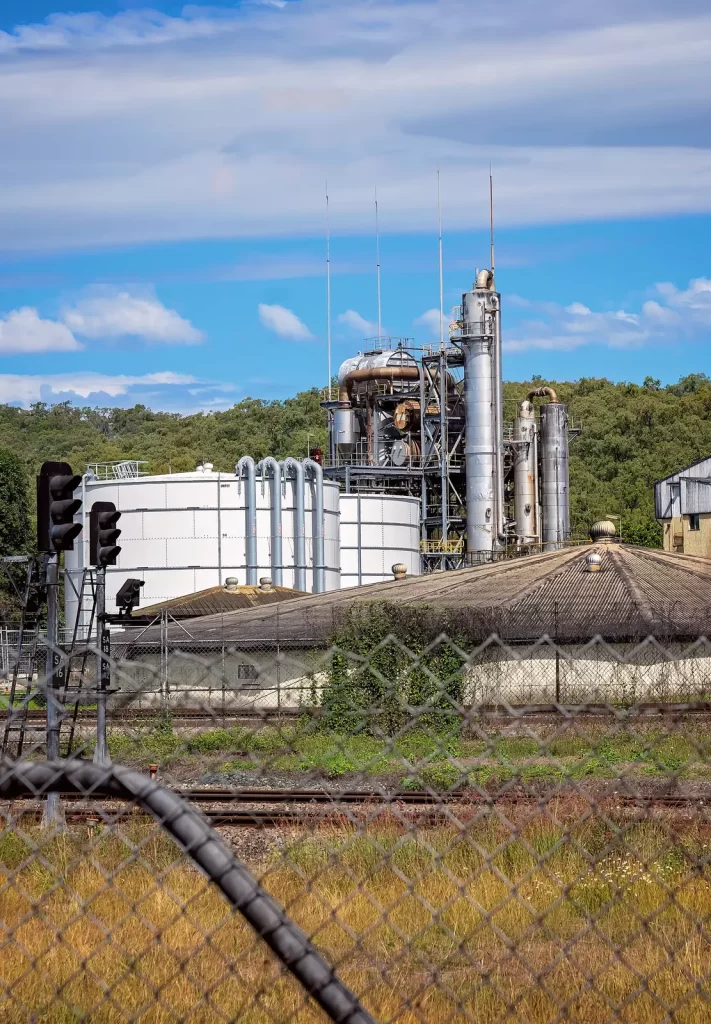
- It’s Not Completely Clean
- High Costs In Comparison To Other Alternatives
- Possible Deforestation
- Production Requires Space
- It Requires Water
- It Has Inefficiencies
- It’s Under Development
While the advantages of biomass are numerous, it is not a perfect energy source.
As with all sources, the disadvantages must also be considered. This is crucial if they are to be confronted properly in order to allow biomass energy to work for the people who need it.
Some of these disadvantages are related directly to the use of the fuel, whereas others are indirect consequences of its production or application.
All are important to keep in mind to have the complete picture in terms of the usefulness of biomass energy.
1. It’s Not Completely Clean
While biomass is a carbon-neutral fuel source, it is not completely clean.
Burning wood and other plant life does create other emissions in addition to carbon. These can pollute the local environment, even if the effects are not as drastic as they may be from fossil fuels.
Some organizations, such as the Partnership for Policy Integration, point to biomass fuels as air polluters.
When compared to other renewables, such as wind and solar, this lack of clean emissions is a major disadvantage.
2. High Costs In Comparison To Other Alternatives
While the cost of extracting biomass fuels is lower than most types of fossil fuels, they still generally exceed those of many other forms of renewable energy.
In some cases, biomass projects are considered not to be worth the price of completion, especially when solar, water, and wind alternatives are available.
This cost comes from the need for biomass resources to be maintained, and for extracted biomass to be replanted.
Furthermore, the cost of the machinery used in extraction is also a factor, as is the transportation of the biomass.
3. Possible Deforestation
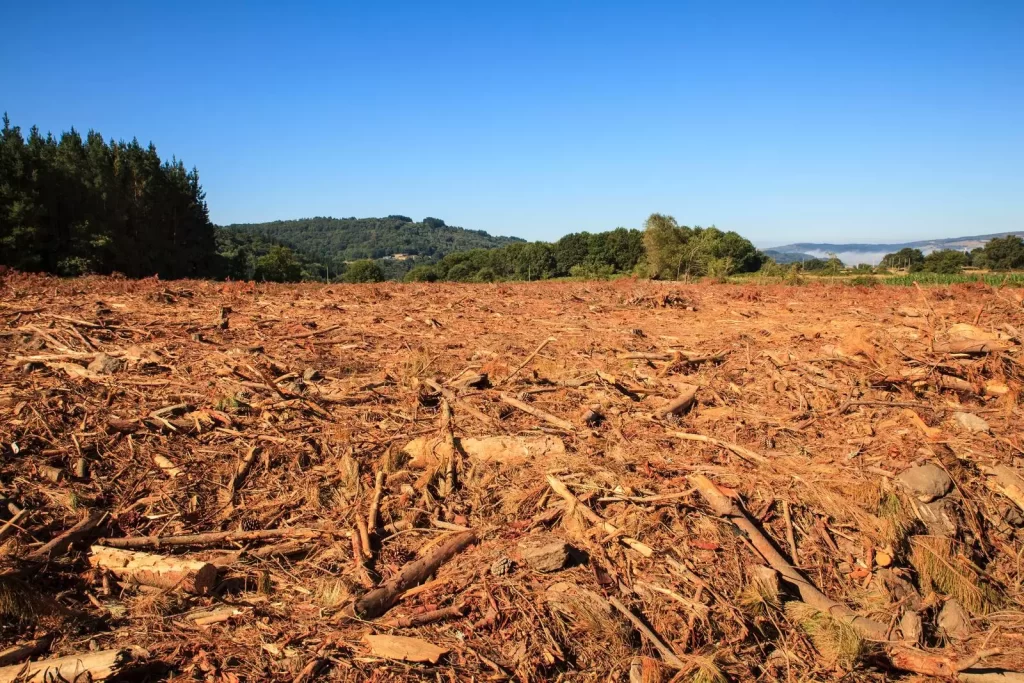
Though biomass fuels are renewable, they also need to be maintained. Failure to do this has been shown to lead to widespread deforestation and increased carbon emissions.
Many biomass power plants are simply chipping up trees to burn to generate steam that turns electrical turbines. These plants can decimate forests quickly to create the biomass they need to run.
This is a major environmental issue. It massively cuts down on the habitable areas available to scores of species of wildlife, leading to extinctions.
This is a major factor that holds back the use of biomass fuels on a large scale, as replanting efforts may not be able to keep up with the amount of fuel needed.
It takes less than a day to cut a tree down and strip it, but decades to replace it with a new one.
4. Biomass Production Requires Space
A large amount of space is needed to grow the materials that are used in biomass energy. This space is not always going to be available, particularly in built-up areas, like cities.
This also limits the areas where biomass energy power plants can be built, as they need to be close to the sources of the fuel to cut down on transportation and other costs.
This makes them less favorable when compared to solar power, which requires less space and is installable in cities and other populated areas.
Finally, the land used could also have been used to grow crops, which is particularly important to feed all the people living on this planet.
5. It Requires Water
An often unseen disadvantage of biomass energy is the amount of water needed in production. All plants need water to live, which means sources must be available at all times.
Not only does this lead to increased costs in terms of irrigation, but it may result in water sources becoming less available to people and wildlife.
Furthermore, with water itself being an alternative form of energy, which is also far cleaner than biomass energy, it raises the question of why the water isn’t used for that purpose instead.
Finally, because biomass crops are not regulated like food crops the watershed can be more contaminated with chemicals due to biomass production.
6. It Has Inefficiencies
While biomass fuels are natural, they are also not as efficient as processed fossil fuels, like petroleum and gasoline.
In fact, biodiesel and comparable biofuels are often combined with small amounts of fossil fuels so that they will work in internal combustion engines.
This, in turn, reduces these biofuels’ effectiveness as a means to cut down on the use of fossil fuel resources.
7. It’s Under Development
More needs to be done to harness the potential that biomass energy has. However, it is held back as an alternative fuel source by many of the disadvantages mentioned here.
When compared to the likes of solar and water sources, biomass is inefficient and under-researched.
In fact, scientists are still working on ways to make it more efficient. Until that barrier is crossed, it is unlikely that biomass energy will be adopted as a viable alternative fuel source on a wide scale.
Read More: What Are Some Alternatives to Fossil Fuels? We go over the most promising alternatives to fossil fuels for transportation.
Final Thoughts
The potential of biomass energy is there for all to see. It is a carbon-neutral fuel source that offers lower costs than fossil fuels, while also being extremely diverse.
However, there are many issues that are holding it back from wider adoption.
In particular, more needs to be done to solve the issue of efficiency as fuel, plus issues like space and cost need to be considered.
Until this happens, it is unlikely that biomass energy will become a viable alternative for fossil fuels, though this does not mean that it doesn’t have its uses.
In particular, the use of biomass energy on a domestic and local level can lead to a reduction in energy bills.
Do you have any opinions about biomass energy and its potential future? Please let us know in the comments section below or share this article on social media to start a conversation.
Resources
- http://usabiomass.org/
- http://www.forestry.gov.uk/fr/bec
- http://www.energysavingtrust.org.uk/renewable-energy/heat/biomass
- https://ypte.org.uk/factsheets/renewable-energy-biomass-energy/introduction
Featured Image Credit: Idaho National Laboratory @ Flickr
